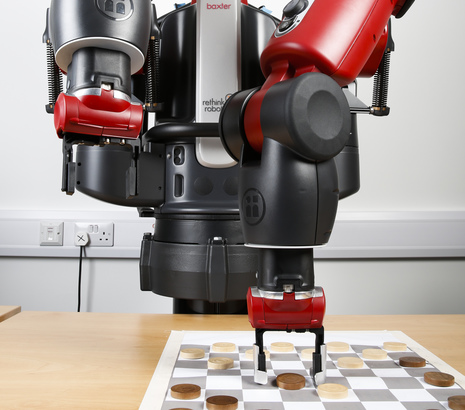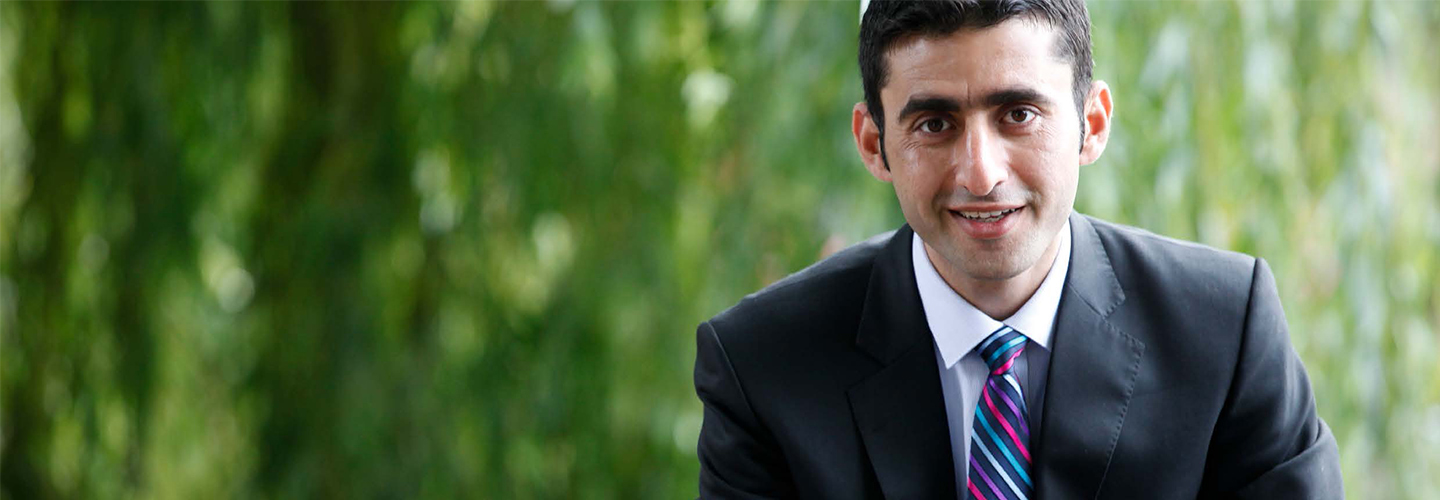BSc (Hons) Computer Science (Top Up) (Online)
Why choose this course?
- You can study when and where you want, fitting in with your other commitments such as work or family
- Our online degrees are based on their on campus equivalents with the same academic quality standards and processes so your award will be recognised worldwide
- Study at a highly-regarded, well established computer science department with excellent facilities, strong links to both business and research, and a track record of graduate success.
- BSc (Hons) Information Technology also available to study online.
For more information about how online study works, funding and how to apply, please visit UH Online.
What's the course about?
If you have a computing or information technology- based qualification that’s the equivalent to the Second Year BSc degree, you can join the Final Year of either of these two BSc courses. Our online computer science and information technology courses are very similar to our campus-based degrees, and the academic standards required are just as high. However, they give you the flexibility to study from wherever you like and to fit learning around other commitments. Computer Science gives you a broad range of skills and knowledge in areas including programming, multimedia, networks, databases, operating systems and software engineering. Information technology includes many aspects of computer science, but with more focus on the needs of people and organisations.
Programming Self-Test
Download our programming self-test document for a selection of exercises to help you see if you have sufficient knowledge and skills to complete the on-line programming module at Level 6 in Computer Science.
You can complete the exercises in any language you are familiar with, but it should support both procedural and object-oriented programming. There is no marking or other assistance provided for this test. It is designed to help you assess your own
abilities in programming.
For more information about how to apply, funding and how online study works, please visit the UH Online.
What will I study?
For entry at Level 6 the programme in its entirety is offered in two study patterns:
- an entirely part-time study pattern (2 years in duration) or
- an entirely full-time study pattern (1 year in duration)
To find out more about distance learning visit: go.herts.ac.uk/online

Student Blogs
Dilek Selin - My typical day
My typical day
A typical day would start off with getting up, catching the University UNO bus and heading towards the forum canteen (they stop serving breakfast around 11:00 but this often changes) to grab a full English breakfast and a coffee at Starbucks (yes, we have a Starbucks on campus!!). During this time, I would regularly check my emails or look at my timetable for the day ahead to find the rooms and prepare my notes for the relevant lectures and tutorials. Generally, after finishing my breakfast I would either grab a meal deal for lunch at the Student union shop since it gets busy towards lunchtime or even because I wouldn’t have time to grab food if I had back to back classes, so having prepped lunch with me or just snacks if I wasn’t feeling too hungry – bringing along food with me was always a must.
Later, if I ever had breaks during my day, I would go to the Learning Resource Centre (LRC) aka the university library. If I didn’t have any upcoming assessments, I would check the active students timetable to see if there were any sports events going on and take part in those sessions where I could participate in sports for free with other students at the uni. After that, I would go to my next classes and then finally when It was home time, I would go back to the bus stop and head home. Since I was a commuting student, by the time I got back home I had enough time to prepare myself for the next day or just wind down from the events of the day. Every student would get at least one day off in the week. For me, in my first year, this was Wednesdays. Including the weekends, I had plenty of time to run errands, book appointments for health checks and even catch up on studies thanks to the extra day off. For the students who lived on campus, they would often take their day’s off as an opportunity to set it as a laundry day!

Student Blogs
Dilek Selin - Things you should know
Things you need to know before studying Computer Science at Herts
It’s okay to not know what you want to do, you don't have to have everything figured out now and as long as you have a direction or a path, stick to it and take new opportunities that present themselves to you, you won't regret taking up on new things and going out of your comfort zone. For me, the best thing I did was take part in a hackathon. The fintech company that was hosting it later offered me my placement, it’s one of those things that you don't expect to happen to you but you sometimes have to make your own luck in these things and research and throw yourself out into the deep end because the challenges we face now are only going to make us stronger for the challenges we are to face ahead.
In my first year everyone was fed in through the same stream, we studied four modules (modules are like subjects), so we took, programming- you get to learn about coding and different programming languages. I learnt about Java but I believe they have introduced Python as well, the second module was Platforms for computing -essentially this module covered the hardware side of computing and we learnt about logic gates which tie in with the content that the electronic engineering students also study, so even though there's a slight overlap it gives us more depth in our subject area and also a chance to explore computing aspects. The third module you'll study at level four (level four being the first year) is models and methods of computing, this was the maths-based module and you'll be exposed to theorems and truth tables and binary, it really will shape your understanding in computing logic.
And finally, Human dimensions of computing, in this module you'll get the chance to work in a group and put your presentation skills to practice, learning about the ethical side of computer science. All four of these modules are further explored in your second-year studies, where the knowledge you gained will be expanded in the sense where one of each of those four modules will link to your second-year modules. Later in your final year, you get to choose a specialised area such as Software Engineering, AI, Networks and Cyber Security. You might be thinking how I know which one to pick, luckily throughout your academic journey, you'll be given tasters to each of the streams. For example, in my second year I took up AI and robotics modules which I really enjoyed- up until then I was convinced, I'd stick with the software engineering stream, but If I had never tried, I would have never known!

Student Blogs
Dilek Selin - Why I chose Herts
Why I chose Herts
Originally studying at Herts wasn't my primary choice, although when I opened my UCAS application and saw my results I was overwhelmed with excitement and I immediately discussed with my family that I wanted to confirm my place at the university, my family were supportive and my dad even drove us to the uni and we explored the campus and spoke with current students about their experience, after hearing and seeing a welcoming and warm atmosphere I wanted to confirm my place on my UCAS application. I had also attended one of the applicant days held by the computer science department. During the applicant day, I spoke with a senior lecturer and also my professor for one of my final year modules as well as a Student Ambassador, she used to be a student at the university so together they both provided me with knowledge on the computer science course and its layout, how it would be assessed. After speaking with them I felt reassured and confident. The University is spread out across two campuses; the second campus is just a 15-minute walk away alternatively a free shuttle bus can take you there in five minutes. There are several activities and events held across the two sites. For example, on our de Havilland campus, there are opportunities to take part in leisurely activities for free.
We have sports available through the university’s active students’ program, active students are free sports sessions for the students, they have a rotating timetable that can be found online, and you just turn up and play!! The variety of sports is very widespread too, you can take part in badminton, volleyball, tennis, football, boxing the list is endless. And the best thing about it is, you don't have to be an elite athlete to take part. They also have a rewards scheme with active students, each time you attend a session you can get a stamp and when you obtain 10 you can get a free hoodie and t-shirt! It’s a great way to stay fit and healthy, to add to this, I've been a commuting student ever since I enrolled and I have not missed out on any of the social sides of the university experience, of course, certain students love nightlife events and we have plenty of events that help throughout the week for those who love a cheeky evening out, I personally prefer going to London and seeing concerts or theatre performances. From Hatfield station to Kings cross it’s just a 20-minute journey.
Male to Female ratio in Computer Science - Being a Female in STEM (Science Technology Engineering and Mathematics)
In terms of women in tech, it’s fairly obvious to say that yes there are more males in the industry, however, many companies and establishments are striving to achieve a more balanced gender ratio, the current ratio of women in computer science is 45% this has increased significantly since the 20th century. One of the main reasons why young girls choose not to pursue comp sci is due to a lack of role models in the industry. However, the whole female to male ratio is so ironic as Ada Lovelace was the world’s first computer programmer so I think it’s safe to say that having a role model to look up to couldn't have been any more inspirational and empowering. As a female in STEM, I feel strong as I can break the norms and stereotypes of others and work together with my peers to come up with solutions to problems. The computer science department held an event for world women’s day and female and male students from our course came together to celebrate women all over the world and women in Tech. I hope that it will be an annual event for many more of our students to celebrate in the future.

